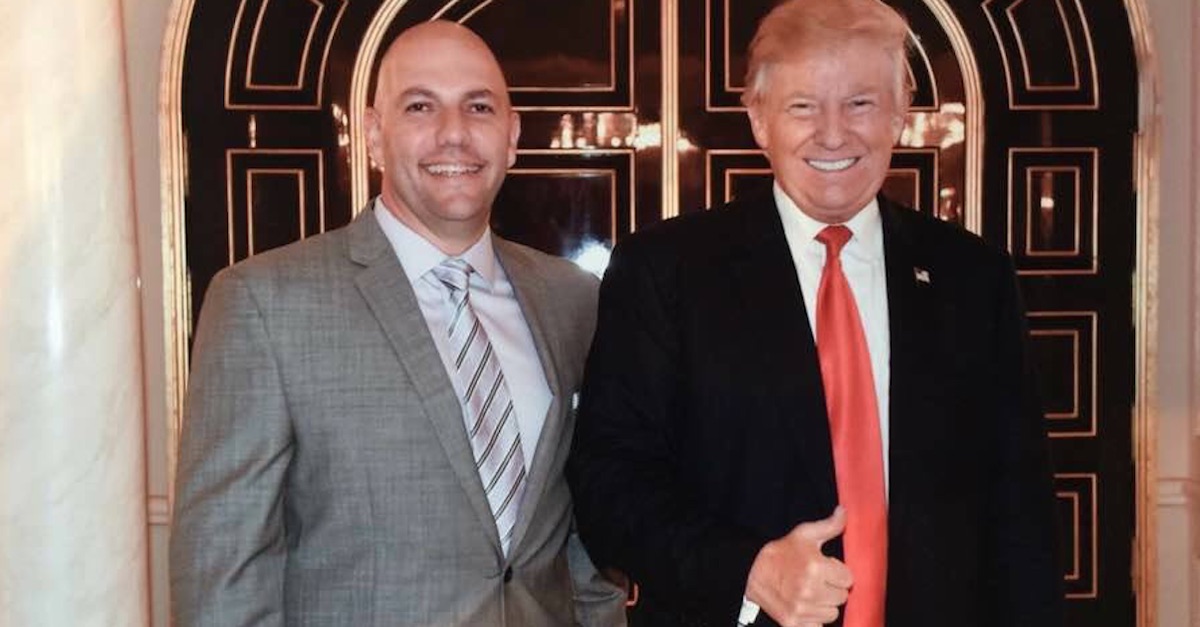
The co-founder of Fraud Guarantee failed on Monday to suppress key evidence in the Southern District of New York’s criminal case against him and Rudy Giuliani’s indicted former business associates Lev Parnas and Igor Fruman.
Federal prosecutors at the U.S. Attorney’s Office formerly run by Geoffrey Berman had argued that David Correia could not assert attorney-client privilege over evidence that he mailed to his lawyer after learning of Parnas and Fruman’s arrests. Those federal prosecutors were vindicated on Monday.
Correia, facing a conspiracy charge related to Parnas and Fruman’s alleged campaign finance violations, unsuccessfully argued that two notebooks, a hard drive, a computer, and a smartphone should all be excluded from evidence.
U.S. District Judge J. Paul Oetken, a Barack Obama-appointed federal judge, first recounted the facts of what happened after Correia learned of his associates’ arrests:
On October 10, 2019, Correia learned that Defendants Lev Parnas and Igor Fruman had been arrested and that the Government was in the process of executing various search warrants. Correia was out of the country at the time. After getting in touch with the Government, Correia’s counsel arranged for him fly back and self-surrender in New York City on October 15, 2019. Correia asserts that he had several discussions with his attorney during which he was provided legal advice. As a result of that legal advice, and before returning to the United States, Correia sent his attorney a DHL package that included two notebooks, a hard drive, a computer, and a smartphone. Correia asserts that he sent the package “to communicate information to [his counsel] for the purpose of soliciting his legal advice and to begin to prepare a defense to the criminal charges.”
On October 14, 2019, Correia informed his attorney that he had left his passport at the DHL office. As a result, he missed his flight and could not arrive in time for his scheduled self- surrender. His counsel informed the Government that he would be delayed due to his inability to get his passport until the DHL office reopened the next morning. On October 16, 2019, Correia successfully self-surrendered in New York City. He had no electronic devices on his person. On October 21, 2019, the Government obtained a search warrant from this Court to search the DHL package. In the affidavit supporting the warrant, the Government stated that the items contained in the package did “not appear to be items that were created for the purpose of legal advice but rather appear to have been sent by mail so that they would not be on Correia’s person when he arrived in the United States to be arrested.” (Dkt. No. 106 at 3.) The next day, the warrant was executed. The Government utilized a filter team to review the contents of the package to determine whether they included privileged material. When the Government produced scanned copies of documents from the DHL package to Correia’s counsel, counsel asserted that all of the DHL package materials constituted a privileged attorney-client communication. Correia has now moved to suppress all evidence found in the DHL package on the basis of attorney-client privilege and the attorney work product doctrine.
While Correia argued that he shipped the materials for the purpose of obtaining legal advice–making those materials covered by attorney-client privilege–the government argued that the items were sent in a package so that they wouldn’t be in Correia’s possession when he was arrested. The government ended up seizing the evidence anyway.
Judge Oetken noted that the transfer of non-privileged documents from a client to his lawyer does not automatically turn those documents or materials into privileged communications.
“It is undisputed that the package contained only two notebooks, a hard drive, a computer, and a smartphone — materials that Correia had with him abroad that might be relevant to the preparation of his defense. There was no letter or other document that discussed even in vague terms the legal advice being sought,” the judge said. “For Correia’s privilege argument to hold water, there must be something about the package itself or the fact that it was sent, rather than hand delivered, that creates privilege. But the ‘mere transmittal of non-privileged documents’ is not a privileged communication.”
“Because nothing in the package revealed any privileged communications between Correia and his counsel, the package cannot become privileged ‘merely because it was sent … between an attorney and client,'” Oetken continued.
The judge concluded by explaining, in real-world terms, what ruling in Correia’s favor would have meant.
“To allow this vast swath of materials to be considered privileged is the antithesis of this Court’s mandate to narrowly construe the attorney-client privilege. Indeed, such an exception would swallow the rule: by simply sending to counsel all materials that could potentially be relevant, a client could render all relevant material in her case privileged and concealed from the opposing party,” Oetken wrote. “Accordingly, the attorney-client privilege does not call for blanket suppression of the materials contained in the DHL package.”
David Correia opinion by Law&Crime on Scribd
[Image via via Twitter screengrab